May 29, 2025 | 07:27 GMT +7
May 29, 2025 | 07:27 GMT +7
Hotline: 0913.378.918
May 29, 2025 | 07:27 GMT +7
Hotline: 0913.378.918
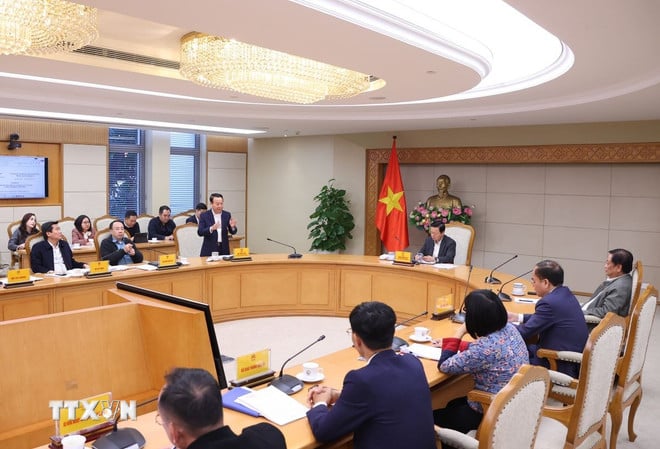
Deputy Prime Minister Tran Hong Ha chaired the meeting. Photo: VNA.
On the afternoon of February 4, at the Government Headquarters, Deputy Prime Minister Tran Hong Ha chaired a meeting to review reports and provide feedback on the draft decree outlining the functions, responsibilities, authority, and organizational structure of the Ministry of Agriculture and Environment. This new ministry is being formed by merging the Ministry of Natural Resources and Environment (MONRE) and the Ministry of Agriculture and Rural Development (MARD).
The new ministry’s organizational structure will be streamlined, consolidating 26 units from MONRE and 27 from MARD into a single entity. Under this plan, the number of administrative focal points will be reduced from 55 to 30, cutting approximately 45% of the total.
Further restructuring within the ministry will focus on reducing the number of department-level units and equivalent bodies, ensuring a more efficient and streamlined administrative framework.
The Ministry of Agriculture and Environment will continue to streamline its internal structure, significantly reducing the number of department-level organizations and equivalent bodies.
As a multi-sectoral and multi-functional ministry, it is essential that the new Ministry of Agriculture and Environment becomes fully operational immediately upon its establishment. This framework must also reflect the country's current context and evolving demands while balancing continuity, stability, innovation, and development. The new ministry will uphold a comprehensive, synchronized, and consistent approach to state administration, ensuring effective governance.
Additionally, the Ministry of Agriculture and Environment will focus on macro-level management, enhancing decentralization and delegation of authority. It will strengthen oversight mechanisms through rigorous inspections, evaluations, and control measures to ensure the effective implementation of policies and laws within its jurisdiction.
The restructuring process will be carried out in tandem with personnel assignments, ensuring alignment between organizational reforms and workforce development. This approach aims to enhance the efficiency and quality of staff, civil servants, and public employees in the newly established ministry.
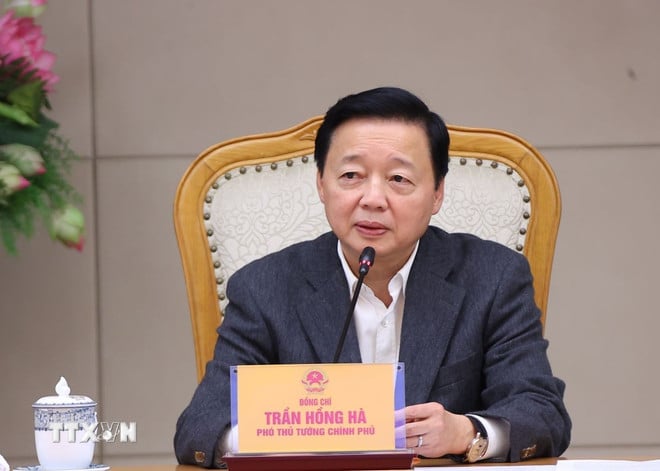
Deputy Prime Minister Tran Hong Ha concluded the meeting. Photo: VNA.
Concluding the meeting, Deputy Prime Minister Tran Hong Ha emphasized that the draft decree should not merely combine the existing regulations of the two ministries. Instead, it must incorporate and update new legal provisions related to land, natural resources, the environment, and agriculture, integrating modern management approaches and innovation policies.
Reiterating the principle of “not assigning one task to two entities,” the Deputy Prime Minister instructed the MONRE to collaborate with the MARD, the Ministry of Justice, the Ministry of Home Affairs, and the Government Office. Together, they must review and refine the legal framework that defines the functions, responsibilities, and authority of the new Ministry of Agriculture and Environment, ensuring no overlaps or gaps in governance.
The Deputy Prime Minister underscored the need for the Ministry of Agriculture and Environment to clearly define its responsibilities to effectively drive the green transformation process. Environmental protection must take precedence over all economic and social activities, ensuring that agricultural development is sustainable, multifunctional, and aligned with food security and spatial planning objectives.
Furthermore, the organizational structure of the new ministry must be based on a thorough review of its assigned functions and responsibilities. This restructuring must address existing overlaps in state management – whether between ministries, between central and local governments, or between regulatory bodies, public service units, and businesses.
The Deputy Prime Minister also provided guidance on transitional regulations for certain public service units that will no longer fall under the Ministry of Agriculture and Environment. Additionally, he addressed financial mechanisms and specific income policies for key sectors, including veterinary medicine, animal husbandry, crop production, plant protection, and quality management of agricultural, forestry, and fishery products.
According to the draft decree, the Ministry of Agriculture and Environment will oversee state management in various sectors, including agriculture, forestry, salt production, fisheries, irrigation, disaster prevention, rural development, land, water resources, geology and minerals, environmental protection, meteorology, climate change, surveying and mapping, remote sensing, and the integrated management of marine and island resources. It will also be responsible for the administration of public services related to these fields.
Translated by Quynh Chi

(VAN) On May 27, La French Tech Vietnam (the French startup and innovation community in Vietnam) held the French Tech Summit Vietnam 2025.
/2025/05/27/4731-2-223159_980.jpg)
(VAN) No votive paper, no styrofoam, no plastic bags, no plastic bottles, and no single-use plastic trays are the key rules tourists should keep in mind when visiting Con Dao.

(VAN) In the fight against plastic pollution, Vietnam has been demonstrating a proactive, pioneering, and active role in addressing the greatest environmental challenge today.
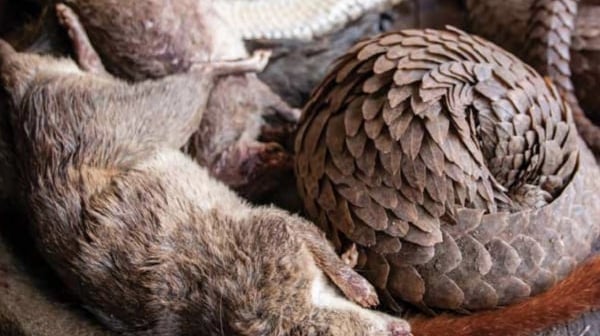
(VAN) The WOAH guidelines provide a vital tool for risk chain analysis, covering the extraction, transportation, consumption, and handling of confiscated wildlife.
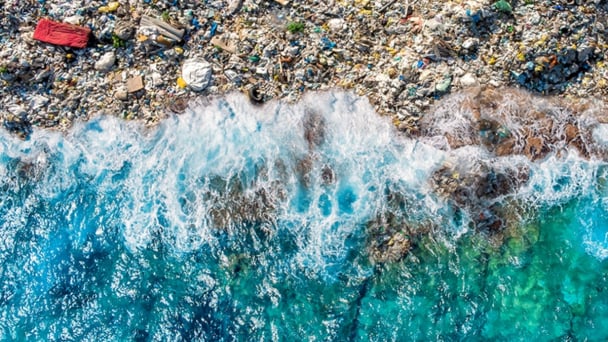
(VAN) World Environment Day 2025 is launched by the United Nations Environment Programme (UNEP) with the theme 'Beat Plastic Pollution'.
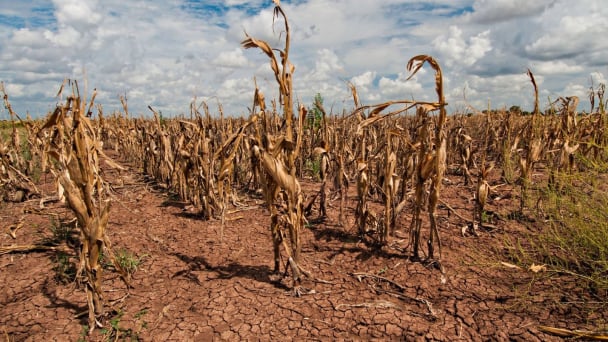
(VAN) As climate whiplash reshapes yields, experts say data-driven tools and targeted relief are critical to feed America.
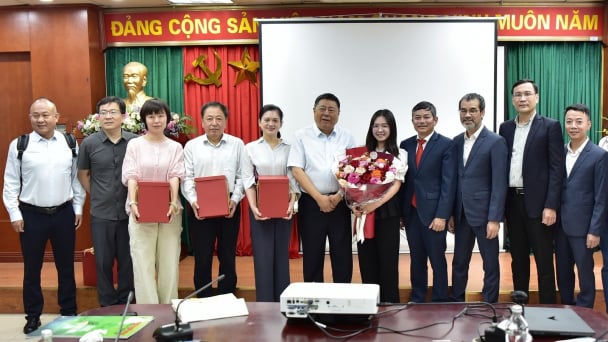
(VAN) The alignment in goals and operational direction between the Vietnam Agriculture and Nature Newspaper and Shaanxi Daily opens up promising prospects for journalism and media cooperation.